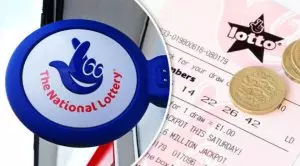 Earlier today, the UK Gambling Commission (UKGC) explained that the new operator of the country’s National Lottery will be expected to donate a portion of its profits to good causes after the current holder of the operating licence faced criticism for not boosting the amount of money contributed to charity organisations despite generating considerable profit growth.
Earlier today, the UK Gambling Commission (UKGC) explained that the new operator of the country’s National Lottery will be expected to donate a portion of its profits to good causes after the current holder of the operating licence faced criticism for not boosting the amount of money contributed to charity organisations despite generating considerable profit growth.
The country’s gambling regulator that also oversees the operation of the UK National Lottery shared that no matter who ran the lottery would be required to spare a fixed amount to the fund that distributed donations to charities and their causes. Apart from that, the operator of the service would have to give a percentage of the generated profits. As revealed by the UKGC, the fixed sum that is set to be paid by the selected company will be set during the bidding process.
For the time being, a set amount of the price of each lottery ticket is received by the Uk Government as tax revenue, with retailers and Camelot, the current operator of the National Lottery, also receiving a set amount of the lottery ticket sales. The remainder forms prizes and funds that are given to local charities.
Camelot Has Been Allowed to Extend Its National Lottery Licence until 2023
 An executive official from the industry, who has knowledge of lotteries’ principles of operation, described the change as a significant one. According to the executive, such a radical shift would mean there could be some consequences for operators in case they did not manage to generate enough sales to deliver the required fix sum.
An executive official from the industry, who has knowledge of lotteries’ principles of operation, described the change as a significant one. According to the executive, such a radical shift would mean there could be some consequences for operators in case they did not manage to generate enough sales to deliver the required fix sum.
Furthermore, the future holder of the UK National Lottery operating licence will only be able to run the business for one 10-year term. Previously, the National Lottery operators had been given the chance to extend this period by up to 5 years.
According to experts, the licence for operating the National Lottery is considered one of the most attractive contracts given to a private company by the UK Government. For the time being, it is also one of the largest lotteries on a global scale. Today, the bidding competition for the next licence starts for the fourth time since the National Lottery started operation in 1994.
The considerable change in the way the operating licence is designed has been made as the result of some criticism faced by the current licence holder after a cross-party report unveiled that Camelot’s profits had risen 122% to £71 million, while its contributions to local charity organisations had been increased by 2% only in the period from 2010 to 2017. The company announced record sales amounting to £7.9 billion in the last 12-month period that was through in March 2020. Its profits were not disclosed but, according to the then-published report, its contributions to good causes increased by 12% to £1.8 billion from the previous year.
Camelot won the right to run the National Lottery for the third time in 2009, and three years later, in 2012, it was given an extension to its current contract, under which it is allowed to operate the business until 2023. So far, a number of groups have shown an interest in becoming the next UK National Lottery licence holder – Sazka, operator of some Austria, Chech Republic and Greece lotteries, media magnate Richard Desmond, and Camelot.
- Author


